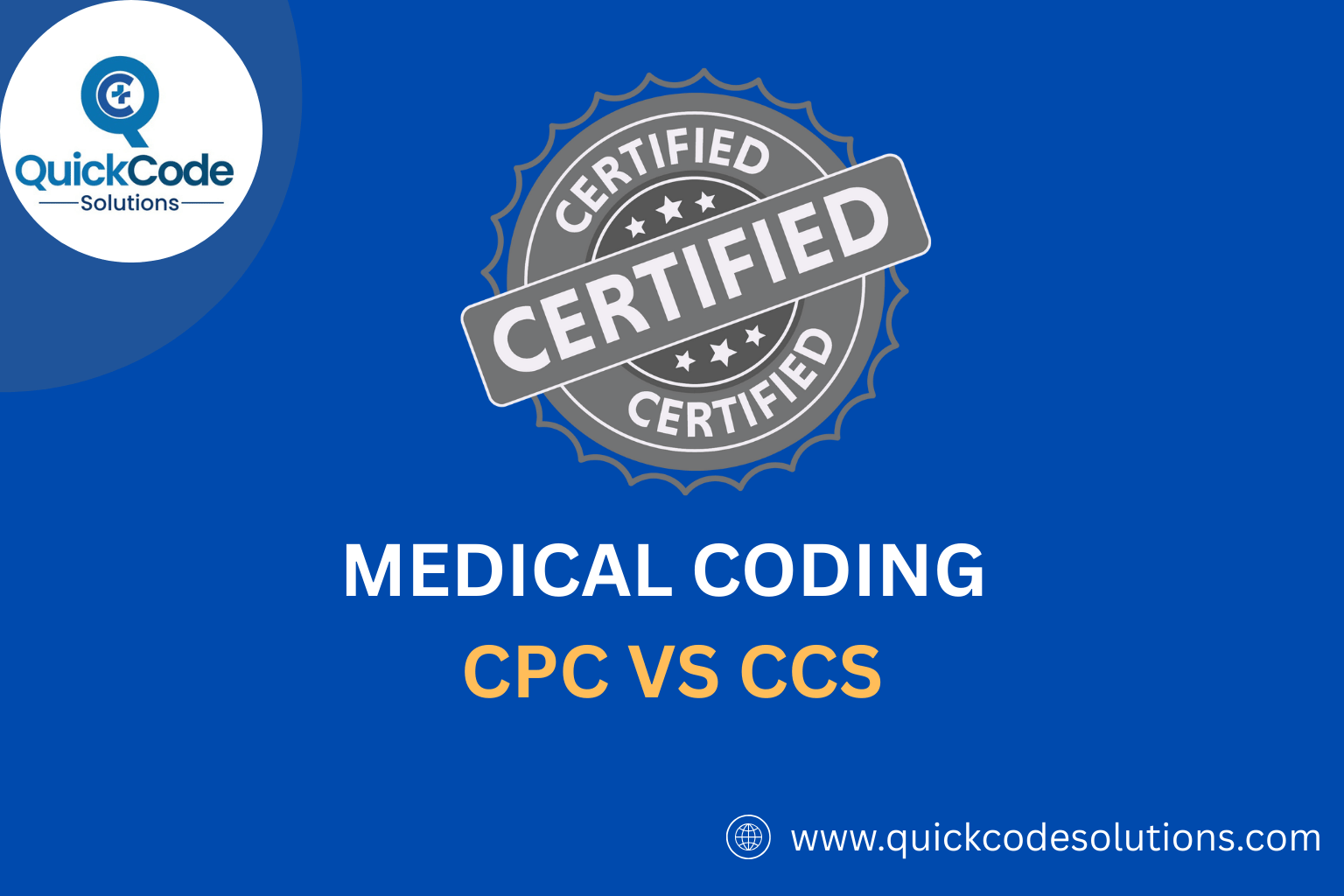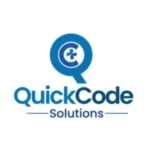
Medical Coding CPC vs. CCS: Find Out Which Certification Fits You Best!
Medical coding is the backbone of the healthcare revenue cycle—meticulous, complex, and in constant demand. But when it comes to certification, the choice between CPC (Certified Professional Coder) and CCS (Certified Coding Specialist) can feel like navigating a labyrinth. One opens doors to outpatient facilities, private clinics, and insurance firms. The other? A gateway to hospital systems, advanced coding, and a higher earning potential.
So, which path is right for you? The decision isn’t just about job titles—it’s about your career trajectory, salary potential, and daily responsibilities. Whether you’re a detail-oriented coder eyeing physician-based work or a data-savvy professional aiming for hospital coding mastery, understanding the key differences is critical.
Before investing months into preparation, get clear on which certification aligns with your skills, ambitions, and lifestyle. This guide will break down everything you need to know—no fluff, just facts—so you can make the smartest choice for your future. Let’s dive in.
Understanding Medical Coding Certifications
Medical coding isn’t just about translating medical procedures into alphanumeric codes—it’s about ensuring healthcare providers get paid accurately and promptly. With the demand for skilled coders rising, earning a certification is no longer optional; it’s a necessity.
But here’s the kicker: Not all certifications lead to the same career path. CPC and CCS cater to different specialties, work environments, and expertise levels. Before diving into the details of each, let’s break down why certifications matter in the first place.
Why Do You Need a Medical Coding Certification?
Imagine walking into an interview without a certification. You might have the knowledge, but employers want proof. Certifications validate your skills, show your commitment to the profession, and make you a more competitive candidate.
Higher salary potential – Certified coders earn significantly more than non-certified professionals.
Better job opportunities – Hospitals, insurance companies, and clinics prefer certified coders.
Industry credibility – A certification tells employers you know the rules, guidelines, and coding systems inside out.
Now, let’s explore what CPC and CCS really mean for your career.
What is the CPC Certification?
If you’re considering a career in medical coding, the Certified Professional Coder (CPC) credential is one of the best ways to kickstart your journey. Recognized by healthcare employers across the country, this certification is issued by the AAPC (American Academy of Professional Coders)—the leading organization for medical coding and billing professionals.
But what exactly does it certify, and why should you consider it? Let’s break it down.
Why Get CPC Certified?
The CPC is designed for coders who want to work in outpatient settings like physician offices, clinics, and insurance companies. It focuses heavily on CPT (Current Procedural Terminology) coding, which is essential for billing doctor’s visits, surgeries, and other procedures performed outside of hospitals.
Career opportunities for CPC-certified professionals include:
✔ Medical coder in physician offices, urgent care centers, and outpatient facilities
✔ Coding and billing specialist for private practices and insurance companies
✔ Compliance auditor or medical billing consultant
✔ Remote medical coding positions with flexibility and high demand
Who is Eligible for CPC Certification?
The CPC exam is open to anyone, but having a background in medical coding is highly recommended. Here’s what you need to know:
AAPC suggests at least two years of professional coding experience before attempting the exam.
If you pass the exam but lack experience, you’ll receive a CPC-A (Apprentice) designation, which can be removed after gaining work experience or completing an approved training program.
Many candidates prepare by taking a medical coding course through AAPC or other accredited institutions.
CPC Exam Structure: What to Expect?
The CPC exam is a tough but fair assessment of your coding skills. It consists of 100 multiple-choice questions, covering essential topics such as:
✅ CPT coding – Surgery, anesthesia, radiology, pathology, and medicine sections
✅ ICD-10-CM coding – Diagnoses and disease classifications
✅ HCPCS Level II coding – Supplies, medications, and services not included in CPT
✅ Medical terminology and anatomy – A strong understanding of healthcare concepts
✅ Coding guidelines and compliance – Ensuring accuracy and ethical billing
To pass, you’ll need a score of 70% or higher, and you’ll have four hours to complete the exam. Unlike the previous format, which allowed 5 hours and 40 minutes, the reduced time requires a strong understanding of coding principles and efficient time management.
CPC Certification Cost & Renewal
Like most professional certifications, the CPC comes with an investment. Here’s what you can expect:
💰 Exam fee – Around $399 for AAPC members (includes one free retake)
📚 Study materials – Optional but recommended (AAPC offers review guides, practice exams, and online training courses)
📝 Membership requirement – You must maintain an AAPC membership ($205/year) to stay certified
🔄 Renewal process – Requires 36 continuing education units (CEUs) every two years to stay up to date with industry changes
The CPC certification is an excellent choice if you’re looking for stability, high earning potential, and strong career prospects in outpatient medical coding. But is it the right one for you? Let’s compare it to the CCS certification next.
What is the CCS Certification?
If the CPC certification is the gold standard for outpatient coding, then the Certified Coding Specialist (CCS) credential is its inpatient counterpart. Issued by AHIMA (American Health Information Management Association), the CCS certification is designed for medical coders who want to work in hospitals and handle complex patient records, procedures, and diagnoses.
Unlike CPC, which focuses heavily on CPT coding for outpatient services, CCS places more emphasis on ICD-10-CM and ICD-10-PCS coding, making it the go-to certification for professionals who want to work in hospital settings, medical research, or specialized coding fields.
Why Get CCS Certified?
The CCS certification is ideal for coders who want to work in inpatient hospitals, large healthcare systems, or advanced coding positions. It proves you have expertise in assigning codes for both diagnoses and procedures, which is crucial for handling complex cases.
Career opportunities for CCS-certified professionals include:
✔ Inpatient coder at hospitals and trauma centers
✔ Medical records specialist in health information management (HIM) departments
✔ Medical auditor or compliance analyst
✔ Advanced coding positions in insurance and government healthcare programs
Since hospitals and large medical centers often require CCS-certified coders, this credential can open the door to higher salaries and career growth opportunities.
Who is Eligible for CCS Certification?
AHIMA recommends (but does not require) prior experience in medical coding before taking the exam. You can qualify for the CCS exam if you meet one of the following:
At least two years of medical coding experience (especially in hospital settings)
A certificate or associate degree in medical coding
Holding a prior coding certification, such as the CCA (Certified Coding Associate) or CPC
Completion of an AHIMA-approved coding program
Because CCS requires knowledge of inpatient coding, it’s best suited for experienced coders or those who have undergone extensive training.
CCS Exam Structure: What to Expect?
The CCS exam is more challenging than the CPC exam because it covers both inpatient and outpatient coding. The exam consists of:
✅ 97-121 questions (multiple-choice and coding scenarios)
✅ ICD-10-CM coding – Diagnosing diseases and conditions
✅ ICD-10-PCS coding – Assigning procedure codes for inpatient hospital services
✅ CPT coding – Outpatient procedures and physician services
✅ HCPCS Level II coding – Billing for durable medical equipment, medications, and supplies
✅ Regulatory compliance and reimbursement methodologies
The CCS exam is five hours long and includes case-based coding scenarios, which require candidates to analyze real-world medical records and assign the correct codes. This makes it one of the most technical and in-depth medical coding exams.
CCS Certification Cost & Renewal
💰 Exam fee – Around $399 for AHIMA members and $499 for non-members
📚 Study materials – AHIMA offers textbooks, coding workbooks, and online courses
📝 Membership requirement – AHIMA membership is recommended but not required ($135-$199/year)
🔄 Renewal process – Requires 20 continuing education units (CEUs) every two years to maintain certification
Is CCS Right for You?
If you’re looking to advance in the hospital coding industry, work with complex patient records, and earn a higher salary, then CCS is a great choice. However, it requires strong coding knowledge and a good grasp of medical terminology, anatomy, and reimbursement rules.
But how does it stack up against CPC? Let’s compare them side by side.
CPC vs. CCS: Which Certification is Right for You?
Now that we’ve broken down CPC and CCS individually, it’s time for the big question—which one should you choose? Both certifications offer exciting career opportunities, but they cater to different types of medical coders. Let’s compare them side by side.
1️⃣ Work Environment: Where Do You Want to Work?
CPC: Best for coders who want to work in physician offices, outpatient clinics, and insurance companies.
CCS: Ideal for professionals who prefer hospitals, inpatient facilities, and advanced medical coding roles.
🚀 If you want a job in a doctor’s office or a flexible remote coding role, go for CPC.
🏥 If you see yourself coding complex hospital cases, CCS is the better fit.
2️⃣ Coding Specialization: What Do You Want to Code?
CPC: Focuses heavily on CPT coding, which is used for outpatient procedures, surgeries, and doctor visits.
CCS: Covers ICD-10-CM, ICD-10-PCS, and CPT, making it more suitable for inpatient hospital coding and advanced procedures.
💡 If you’re comfortable with procedural coding and physician-based services, CPC is great.
🔬 If you want to dive into disease classification and inpatient treatments, CCS is the way to go.
3️⃣ Exam Difficulty: Which One is More Challenging?
CPC: 100 multiple-choice questions, four-hour exam.
CCS: 97-121 questions, including case-based coding scenarios, five-hour exam.
🎯 CPC is more straightforward, focusing on outpatient coding rules.
⚡ CCS is more complex, requiring you to code real-world patient records accurately.
4️⃣ Salary Potential: Which One Pays More?
CPC-certified coders earn an average of $58,000-$65,000 per year.
CCS-certified coders make around $65,000-$80,000 per year, often more with experience.
💰 CCS tends to have a higher earning potential since hospital coding is more specialized and demanding.
5️⃣ Job Demand & Growth: Which Has More Opportunities?
📈 Both certifications are in demand, but CPC offers more entry-level job opportunities, making it a great starting point.
🏥 CCS is highly sought after by hospitals, but may require prior experience or training.
Final Verdict: Which Certification Should You Choose?
✅ Go for CPC if:
✔ You’re just starting out in medical coding.
✔ You want to work in outpatient clinics, physician offices, or insurance companies.
✔ You prefer a multiple-choice exam format.
✔ You’re looking for more entry-level job opportunities.
✅ Go for CCS if:
✔ You have experience or education in medical coding.
✔ You want to work in hospitals and handle inpatient cases.
✔ You enjoy analyzing detailed medical records and coding complex conditions.
✔ You’re ready for a more challenging exam and career path.
Conclusion: Take the Next Step Toward Your Certification
No matter which certification you choose, both CPC and CCS can lead to a rewarding career in medical coding. The key is to align your certification with your career goals, work environment preferences, and coding expertise.
If you’re still unsure, consider starting with CPC to gain experience and later advancing to CCS for hospital coding opportunities. Many coders eventually hold both certifications to maximize their job prospects and earning potential.
📚 Ready to get started? Research CPC and CCS prep courses, take practice exams, and begin your journey toward certification. Your future in medical coding starts today!
Whatsapp Us
Follow Us on Instagram
Register For Free Demo
Recommended Posts
- Top 10 Best Medical Coding Institutes in Hyderabad | 2025 Guide
- Top 10 Medical Coding Institutes in Ameerpet: A Comprehensive Guide
- Top 10 Best Medical Coding CPC Training Institutes in Hyderabad
- Unlocking a Career in Healthcare:The Ultimate Guide to Medical Coding Online Course in India
- Medical Coding Training in Hyderabad with Job Placement Guarantee
Register For Free Demo
QuickCode Solutions offers expert-led medical coding training, with a focus on certification preparation, career support, and practical skills. Our courses equip students with the knowledge needed to excel in the healthcare industry.
CONTACT
#202,Mahindra Residency,Beside Aditya Trade Centre,Ameerpet,Hyderabad-500038

LOCATION ON MAP
© 2025 QuickCode Solutions




